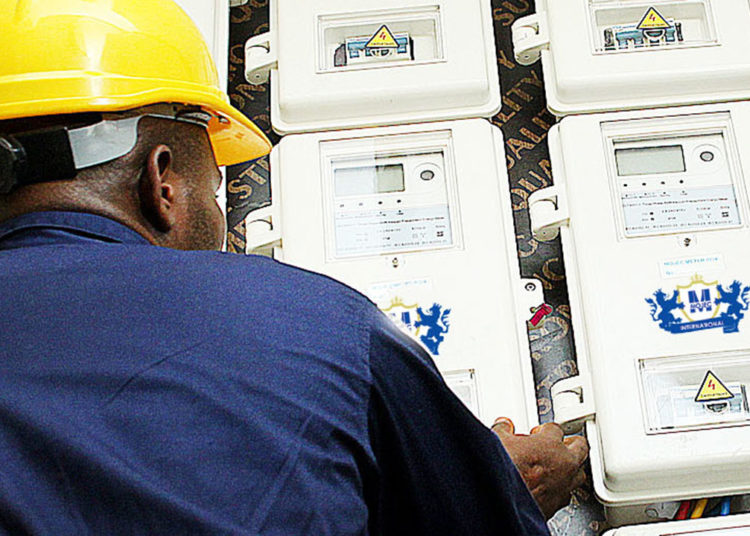Many manufacturing firms, especially Small and Medium Enterprises (SMEs), may be forced to shut down or relocate from Nigeria due to the prevailing harsh business environment as electricity distribution companies yesterday announced an increase in their tariff starting from July 1.
This comes barely eight years when over 50 firms, including Dunlop and Michelin tyre manufacturing firms, relocated from Nigeria and only converted the country into their sales markets after manufacturing their products outside the country, thereby, creating jobs for millions outside to the detriment of many jobless Nigerians.
LEADERSHIP authoritatively reports that electricity tariff would rise across all the country with the 11 Electricity Distribution Companies, DisCos, implementing new tariff across their networks.
Already, Abuja Electricity Distribution Company, AEDC, has announced that there will an upward review of the electricity tariff in July 2023.
According to a public service announcement issued by the company yesterday, the tariff increased is influenced by the fluctuating exchange rate.
“Effective July 1, 2023, please be informed that there will be an upward review to the electricity tariff influenced by the fluctuating exchange rate.
“Under the MYTO 2022 guidelines, the previously set exchange rate of N441/$1 may now be revised to approximately N750/$1 which will have an impact on the tariffs associated with your electricity consumption,” the statement read.
It stated that for customers within Band B and C, with supply hours ranging from 12 to 16 per day, the new base tariff is expected to be N100 per kWh while Bands A with (20 hours and above) and B (16 to 20 hours) will experience comparatively higher tariffs.
The company also encouraged customers with prepaid meters to consider purchasing bulk energy units before the end of the month as this will allow them take advantage of the current rates and potentially make savings before the new tariffs come into effect.
“For those on post-paid (estimated) billing, a significant increment is imminent in your monthly billing, starting from August,” it added.
Also, a similar message from Ikeja Electricity Distribution Company (IKDC) yesterday morning informed the public of an impending tariff hike starting on July 1, citing the same reason.
Reacting to the impending review, the Manufacturing Association of Nigeria, MAN, has warned that most manufacturing firms, especially, SMEs will be forced to shut down or leave Nigeria due to the prevailing harsh business environment.
Citing the new increment in petrol prices which has made it difficult for them to power their generators, coupled with the over 40 per cent hike on energy for running businesses, it said the plan to bring in more investors by President Tinubu would be mirage as the harsh business environment will work against new investments.
On his part, the president of the Food Beverage and Tobacco Senior Staff Association (FOBTOB), Comrade Jimoh Oyibo, claimed that the sector which used to generate over 1.5 million jobs had not only lost over 1,478 jobs and over 10 firms which had closed down over forex, but most firms, especially SMEs in the sector, will be forced out of business as a result.
Findings by LEADERSHIP showed that millions may lose their jobs because of the new hike as most manufacturing firms that can no longer cope will either shut down or relocate to other countries. For example small scale bottled water firms are already contemplating the next line of action to take.
They claimed that the hike, which will be barely three weeks after hike in transportation cost, sharp increment in prices of food and others, based on subsidy removal, will further push most Nigerians into poverty.
On his part, Dr Innocent Ihennacho Ogbonna described the planned hike as a sign of insensitivity on the part of government towards the masses who, he said, had already been pushed to the wall with the current hardship in the country.
According to Ogbonna, “Already, many manufacturing firms are not finding it easy. They have to face self-generation of power, but with the hike price of fuel, then ordinary Nigerians will have to go back into the use of firewood and lanterns; moreover manufacturing firms will find it hard to cope and will be forced to shut down.
“The new tariff increment is a sign of daylight robbery. It is a sign that they are only there to oppress because the common man has nowhere to run to for justice as the law courts, which used to be the last resort of the common man, has been policised.”
The president of One Nigeria Empowerment Initiative (ONEI), Comrade Onwumere John described the planned increase as something that would make many businesses shut down and throw workers into the labour market.
Onwumere said, “By this, our country’s leadership is showing that it is not there to make life better for the masses. Let them remember that the poor people are no longer cooking food because they cannot afford to pay for a litre of kerosene. President Tinubu should help with policies that can favour the poor people in the country for God’s sake rather than squeezing their necks with hard policies.”
On his part, the director general, MAN, Mr Segun Ajayi-Kadir lamented that members of the association who had only been struggling to stay in business will be forced to take the hard decision of either to shut down or relocate outside.
Pointing out that MAN members spent above N144.5bn on alternative energy in 2022, Kadir said that “surveyed data by MAN suggests that manufacturers spent at least N144.5bn on sourcing alternative energy in 2022, up from N77.22bn in 2021.
“This translates to about 87% increase in the cost of access to alternative energy sources by manufacturers within a year. In the last eight years, electricity tariff has been increased by 186 per cent. The fact that the government itself is owing N75 billion in unpaid electricity bills is indicative of how burdensome the cost of electricity has become.”
A reliable source in the sector however explained that the tariff may vary as the level of investments by DisCos would determine the percentage of review.











